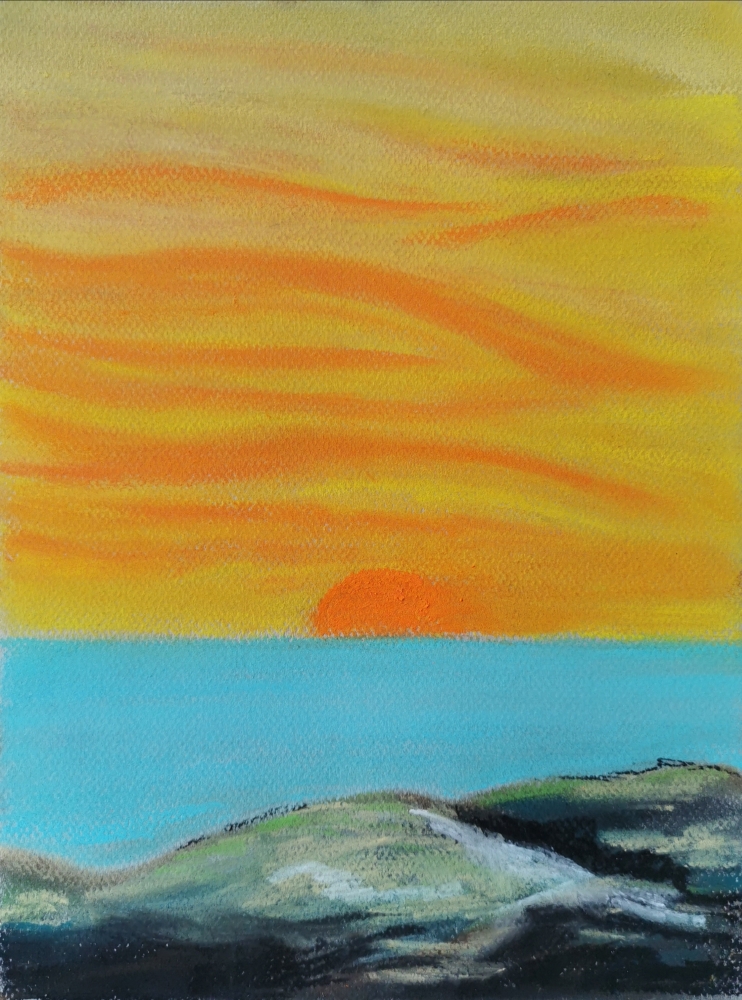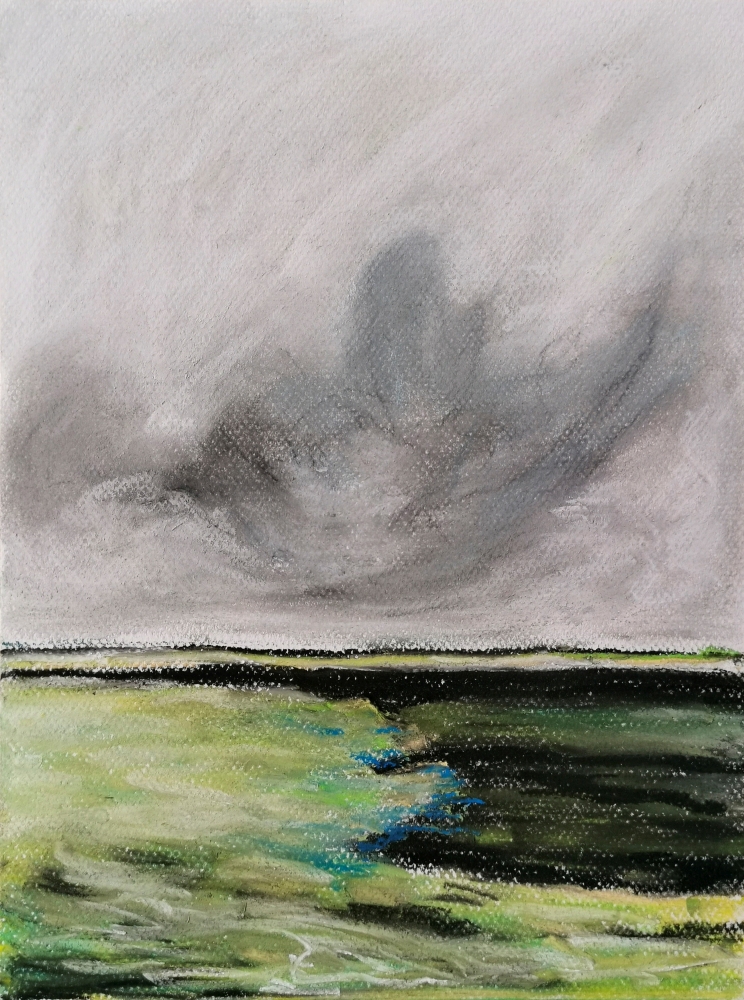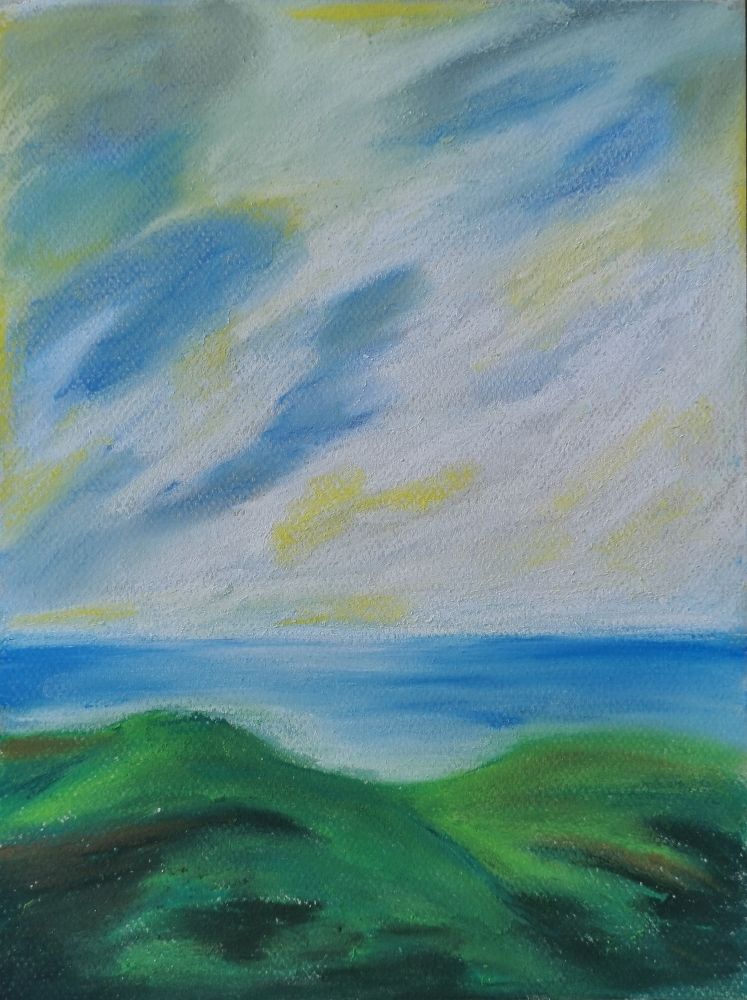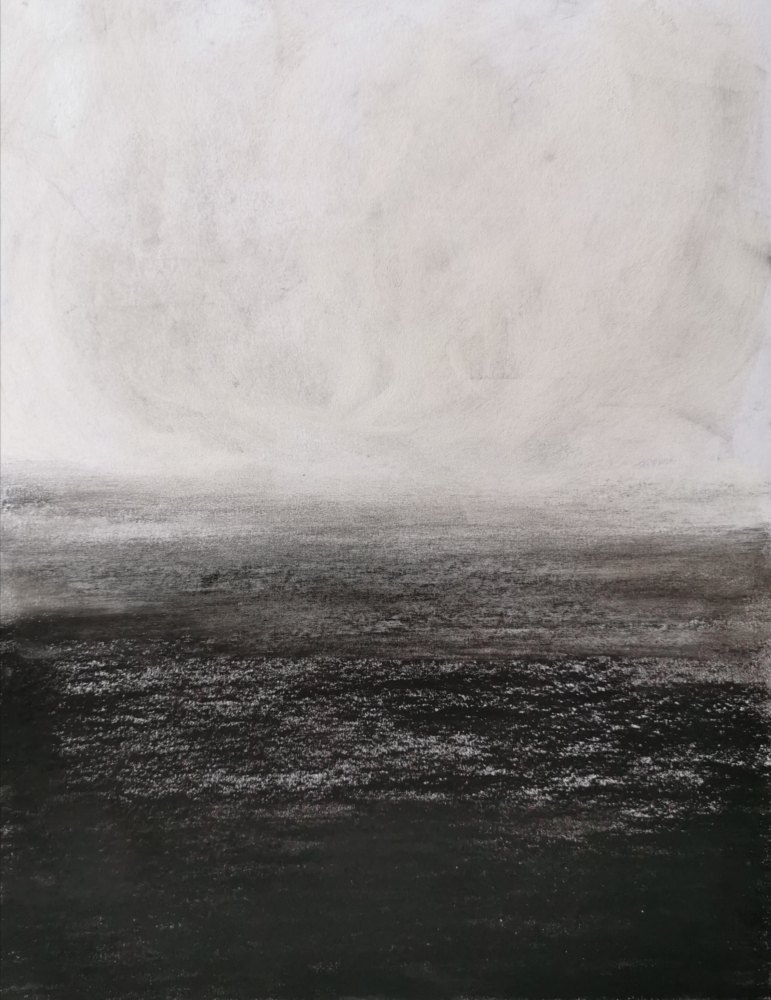6 Artworks – Steven Tutino
ARTIST STATEMENT
Through these art pieces, I engage with the oil paintings of the 19th century Swedish playwright and visual artist, August Strindberg. These are mostly pastel imitations of Strindberg’s oil paintings, a genre he turned to in moments of intense personal crisis. I’ve always had a fascination with this aspect of Strindberg’s output because his career as a writer and playwright are what he is principally recognized for today – as one of the three European masters alongside Ibsen and Chekhov. But I am more interested in the untold stories of Strindberg’s art and my engagements with his visual output through the use of pastels is not only a reflection of my own fascination with his work and the visual arts more generally, but also with the possibility of thinking about these landscapes and seascapes as ‘landscapes of the mind,’ or ‘landscapes of the soul/psyche’ – so right away we see the blurring of the lines between the physical tangible landscape/seascape and the inner and emotional psychological depth of the artist and all that chaos and turmoil and darkness which they use as a means of making the unknown known. It was precisely due to his psychological suffering and unrest that Strindberg was able to turn to whatever medium suited him best in the fury of the particular moment– amidst a profound disillusionment with writing that resulted in a 5-year writer’s block, Strindberg desperately searched for redemption and salvation in anything he could put his hands on: painting, photography, alchemy, botany and the occult.
My pastel imitations of his works are ultimately softer versions (hence the medium of ‘soft pastels’) of his layered and thick knife strokes – almost all of his works are painted through the use of the palette knife because he felt it allowed him a certain kind of freedom and flexibility to express the onslaughts of near-madness which gripped him in the 1890’s – now known famously as his Inferno period. But it was his courage and bravery in expressing the turmoil and darkness inside through whatever medium he could find that has left a lasting impression on me and which continues to inspire me to do the same in my own art practice.
Art is about a spiritual quest – it is in and through art that the artist is saved and redeemed. I always turn to my diary after completing an artwork – to express the release and exhilaration and utter joy I feel. It is pure transcendent bliss and I feel stronger every time as a human being. For me, art is about reaching some semblance of the divine, and my art therefore becomes a carrier of theological meaning as a result. The transcendent and divine are integrated within the material confines of the canvas – the painting is symbolic of the deep search for meaning and value and often points to a reality and extraordinary meaning beyond itself. It is self-referential while also a reference point to something bigger than this world. After I’ve painted, I can feel that my life has taken on deep meaning. Art and the practice of art sustains meaning and value in my life, all the while recognizing that it is a process which must continually be renewed and reinvented.






Steven Tutino was born in Montréal, Canada, and is a painter, poet and writer. He is currently a graduate student at Concordia University in the process of completing an M.A. in Theological Studies. His artwork has appeared in numerous journals and magazines including TreeHouse Arts, Montréal Writes, Spadina Literary Review, The Montréal Gazette, The Indianapolis Review, Apricity Magazine, Ariel’s Dream, Wild Roof, Beyond Words, Unlimited Literature, The Raw Art Review and After the Pause. Apart from his art practice, Steven enjoys reading and writing, going for long meditative walks and giving his 110% in the gym.